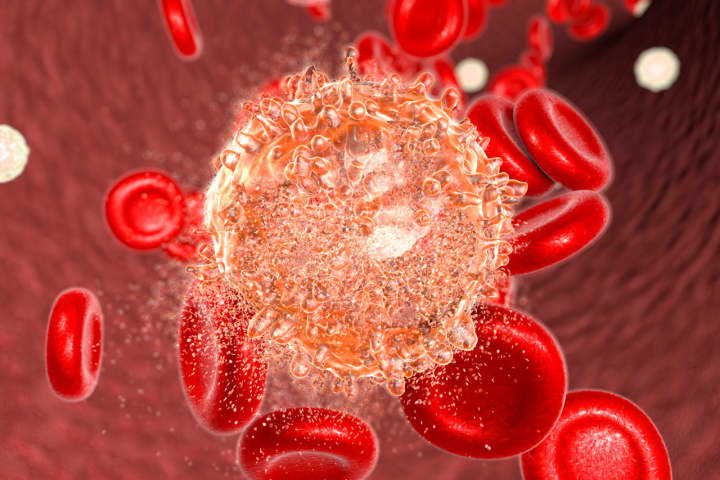Hematologic cancers, of which there are three main types, begin either in the bone marrow or the cells of the immune system. Leukemia is a cancer of bone marrow cells that results from the rapid production of abnormal white blood cells, which eventually overtake normal blood cells and cause anemia, bleeding and infections. Lymphoma is a cancer that develops in infection-fighting cells called lymphocytes, and is broadly divided into non-Hodgkin’s lymphoma and Hodgkin’s lymphoma. Lastly, Myeloma is a cancer of plasma cells that produces infection-fighting antibodies which weaken the immune system.
The symptoms of hematologic cancers vary, but often include weakness, fatigue, shortness of breath, easy bruising and bleeding, frequent infections, enlarged lymph nodes, distended or painful abdomen, bone or joint pain, fractures, weight loss, poor appetite, night sweats, persistent mild fever and decreased urination.
Treatment often depends on the type of cancer, location and stage of the disease, as well as the patient's age and physical health. Chemotherapy is a primary treatment, though some patients receive radiation therapy or a transplant of stem cells or bone marrow. For patients whose condition has progressed, therapies may involve combinations of chemotherapy and immunotherapy.
NewYork-Presbyterian conducts many studies in blood cancers to provide patients with treatment options, including multi-phase clinical trials related to bone marrow and stem cell transplantation. In addition, specialists at NYP/Columbia University Medical Center are also involved in research to enhance outcomes and reduce treatment-related complications. Watch this video to learn more about stem cell transplant.
As breakthroughs in treatment approaches for hematologic cancers continually evolve, it's important to be diagnosed and treated at a comprehensive cancer center. At NYP, specialists collaborate to develop a personalized treatment plan using the latest treatment approaches for hematologic cancers. NYP provides comprehensive cancer care at all NYP hospital locations across the New York Metro area including Westchester County and the Hudson Valley. To find a cancer specialist at the location most convenient for you, please visit nyp.org/cancerlocations.
NewYork-Presbyterian, one of the largest and most comprehensive health care delivery systems in the nation, is dedicated to providing the highest quality, and most compassionate care to patients in the NY metropolitan area. In collaboration with two renowned medical schools -- Columbia University Medical Center and Weill Cornell Medicine -- NYP is a recognized leader in medical education, research and innovative patient care. NewYork-Presbyterian Hospital has been ranked New York’s No. 1 hospital for 16 consecutive years according to U.S. News and World Report. Learn more at nyp.org.



